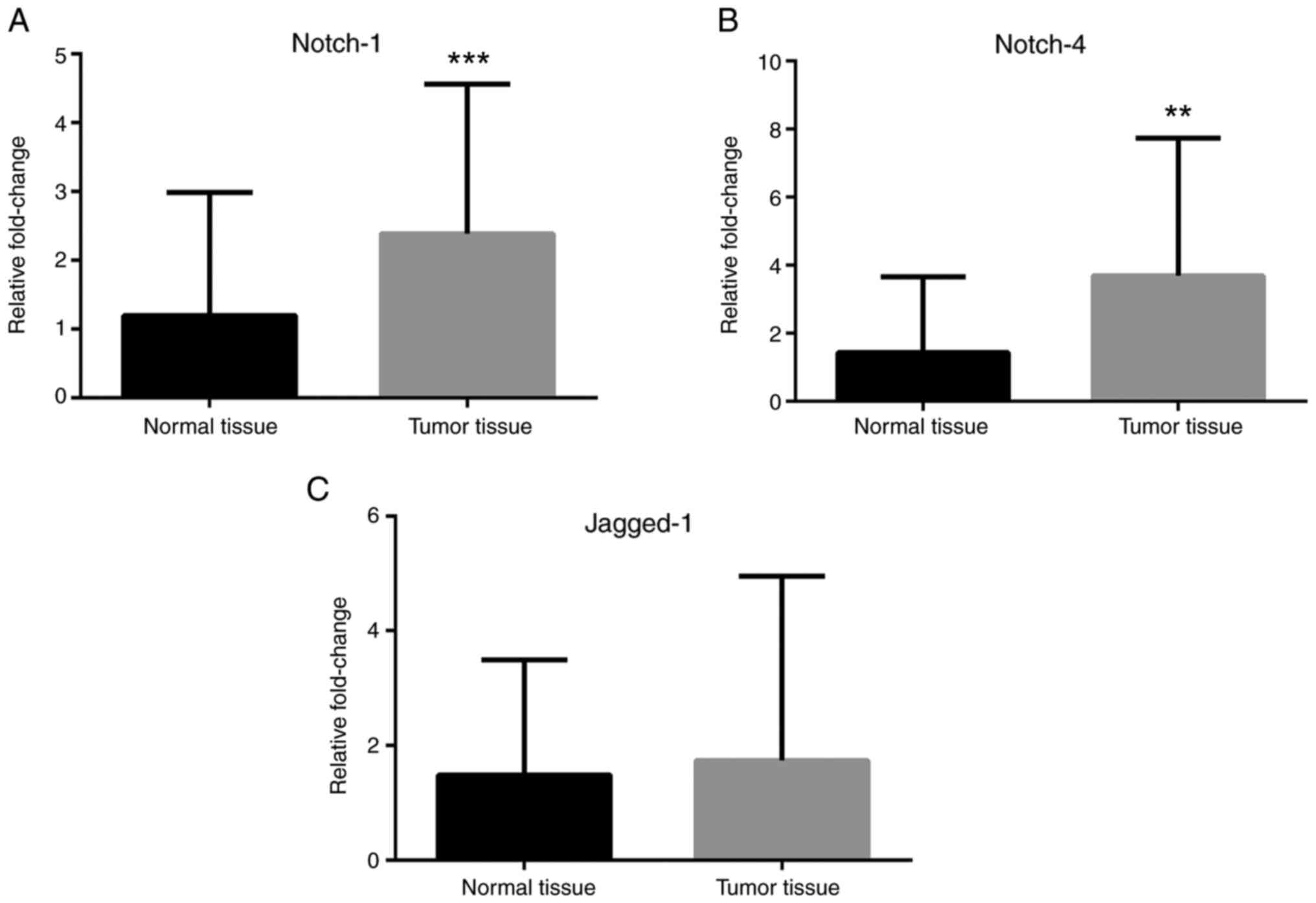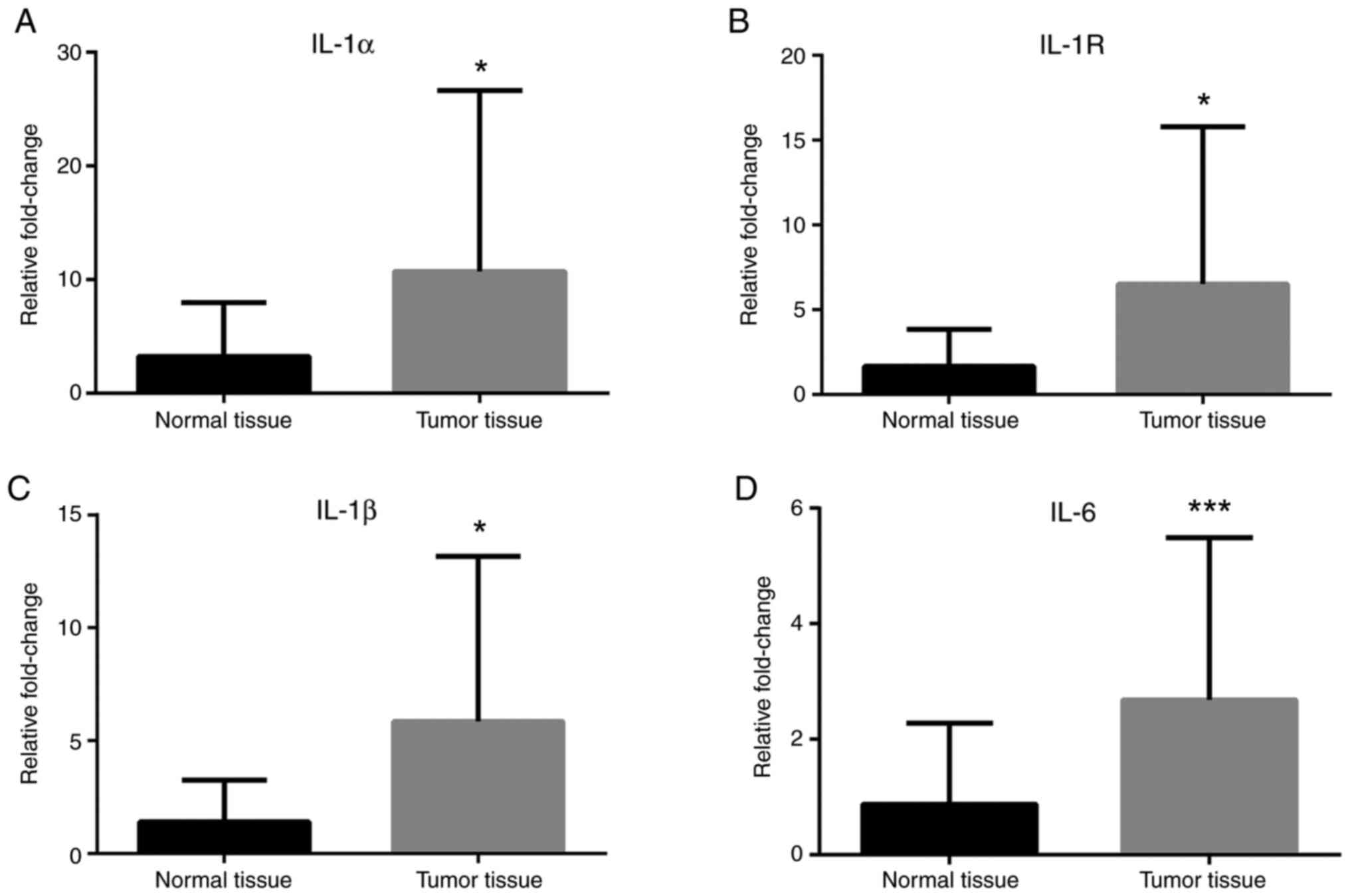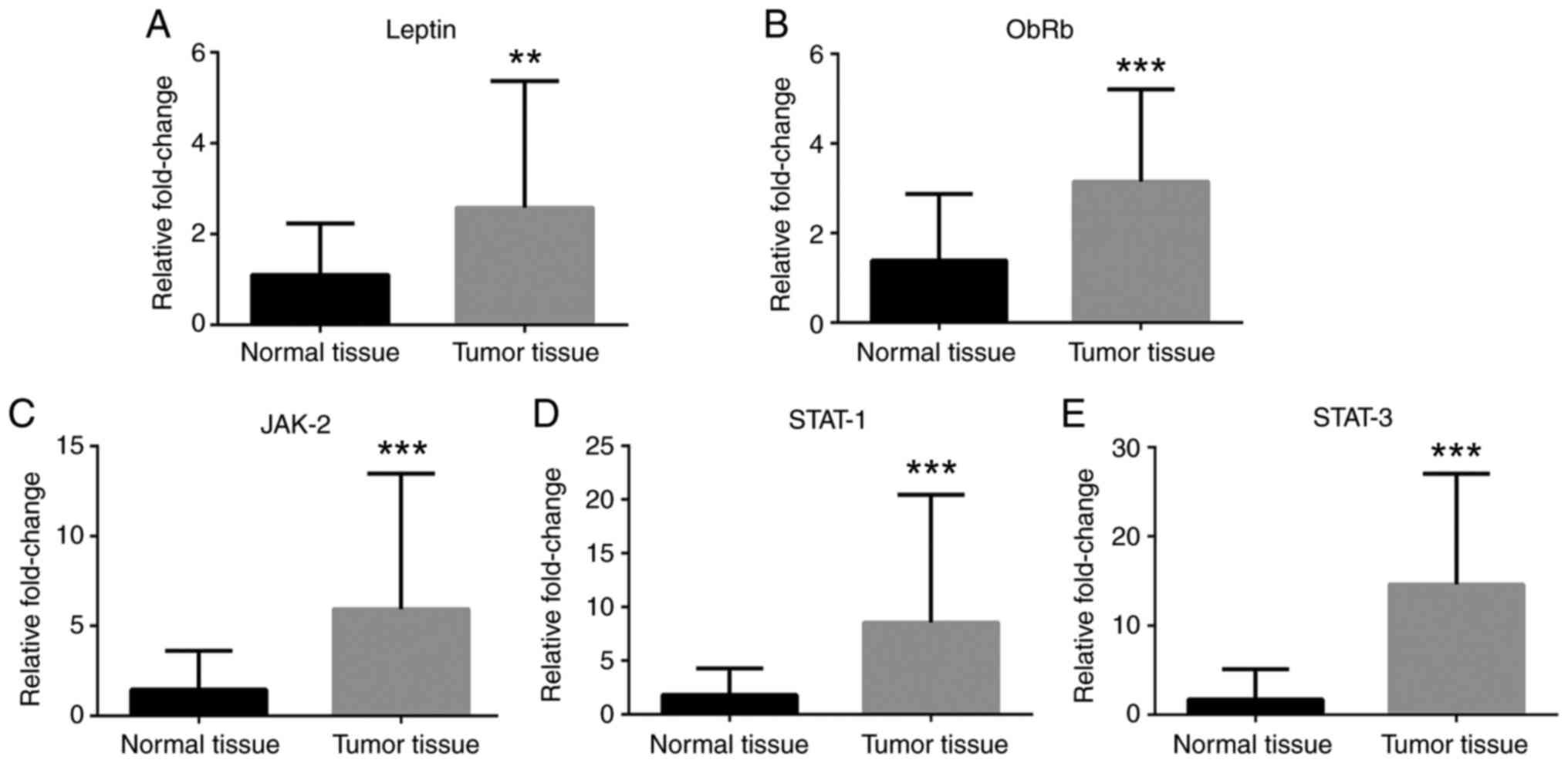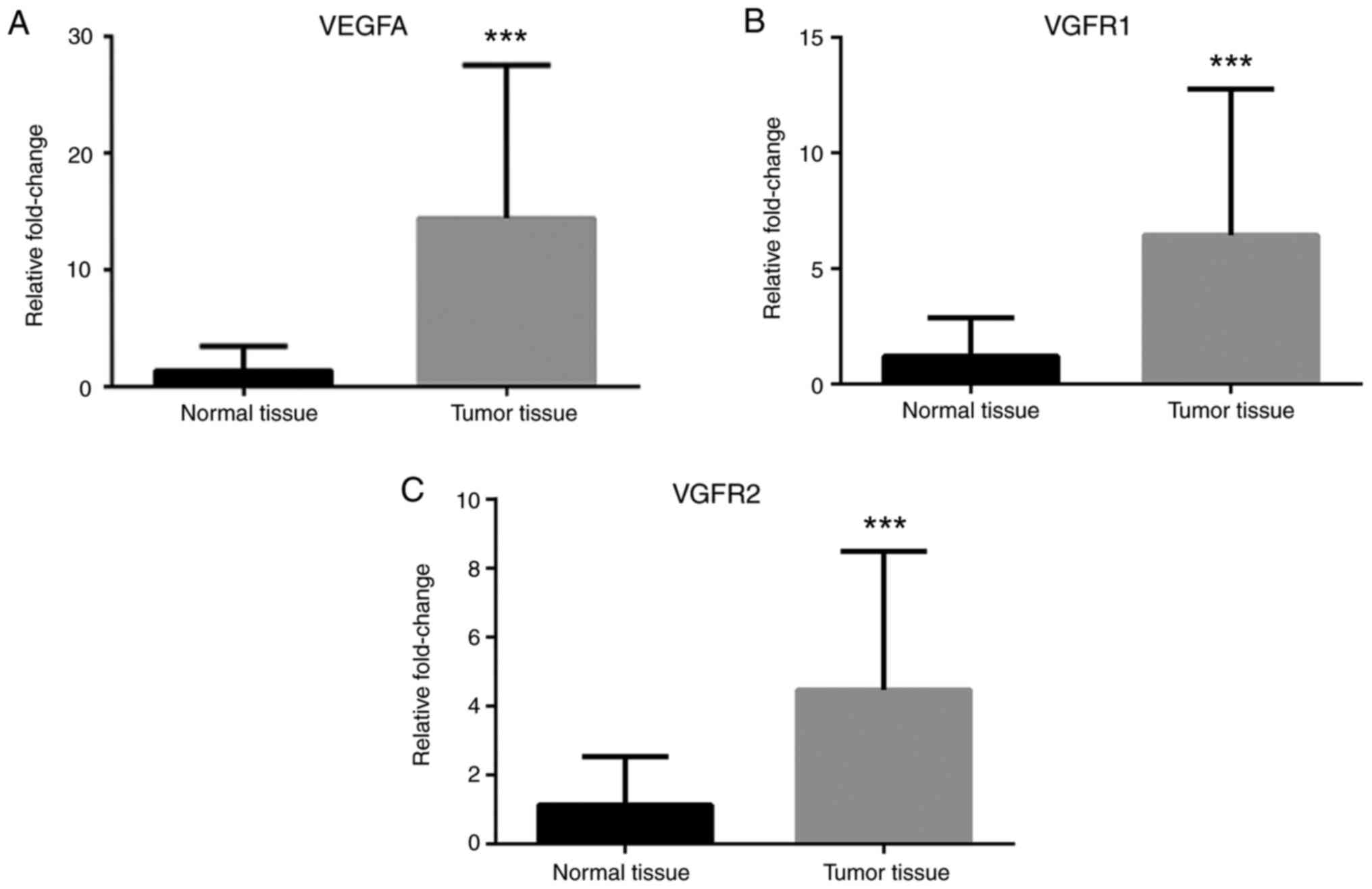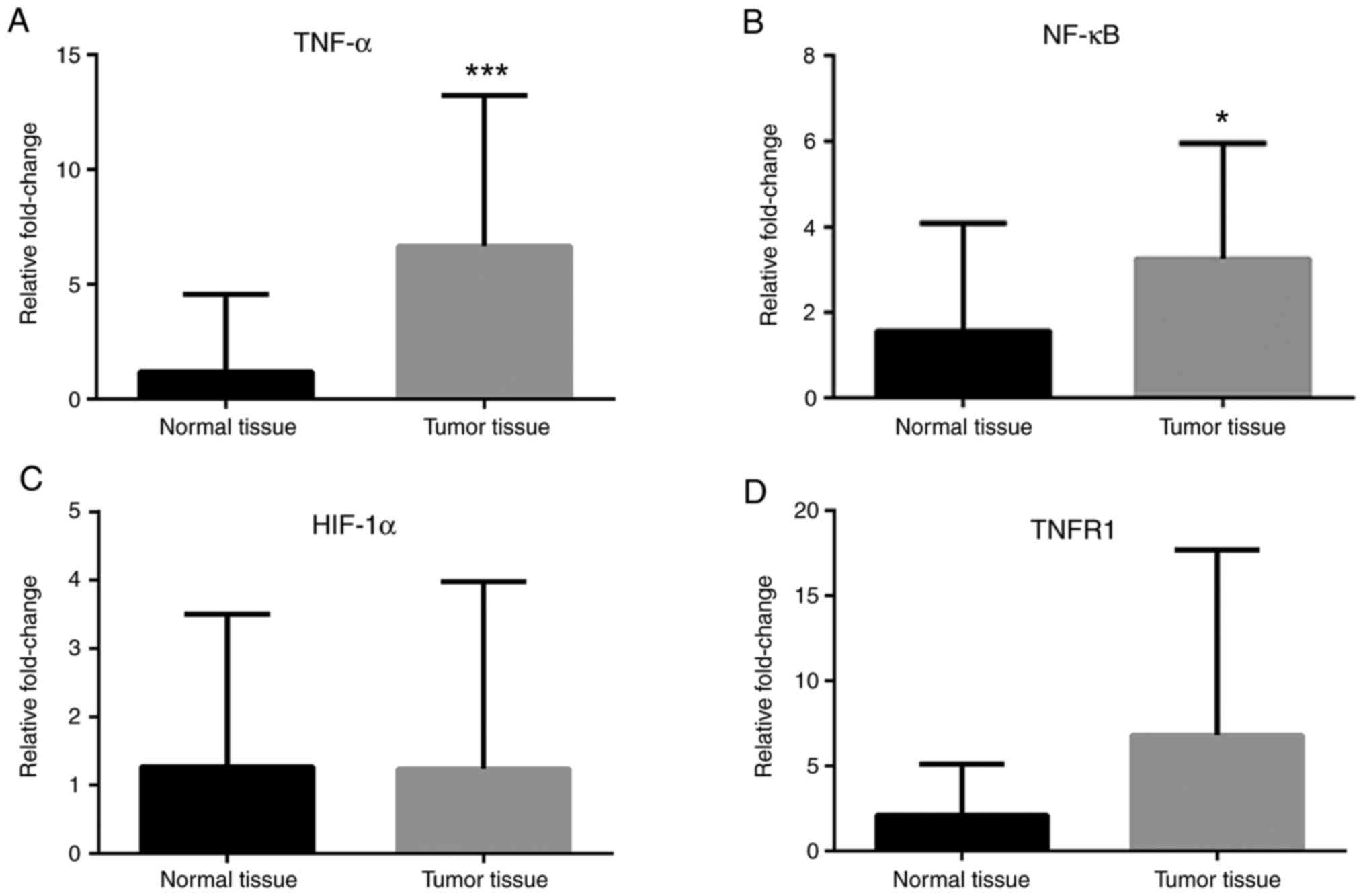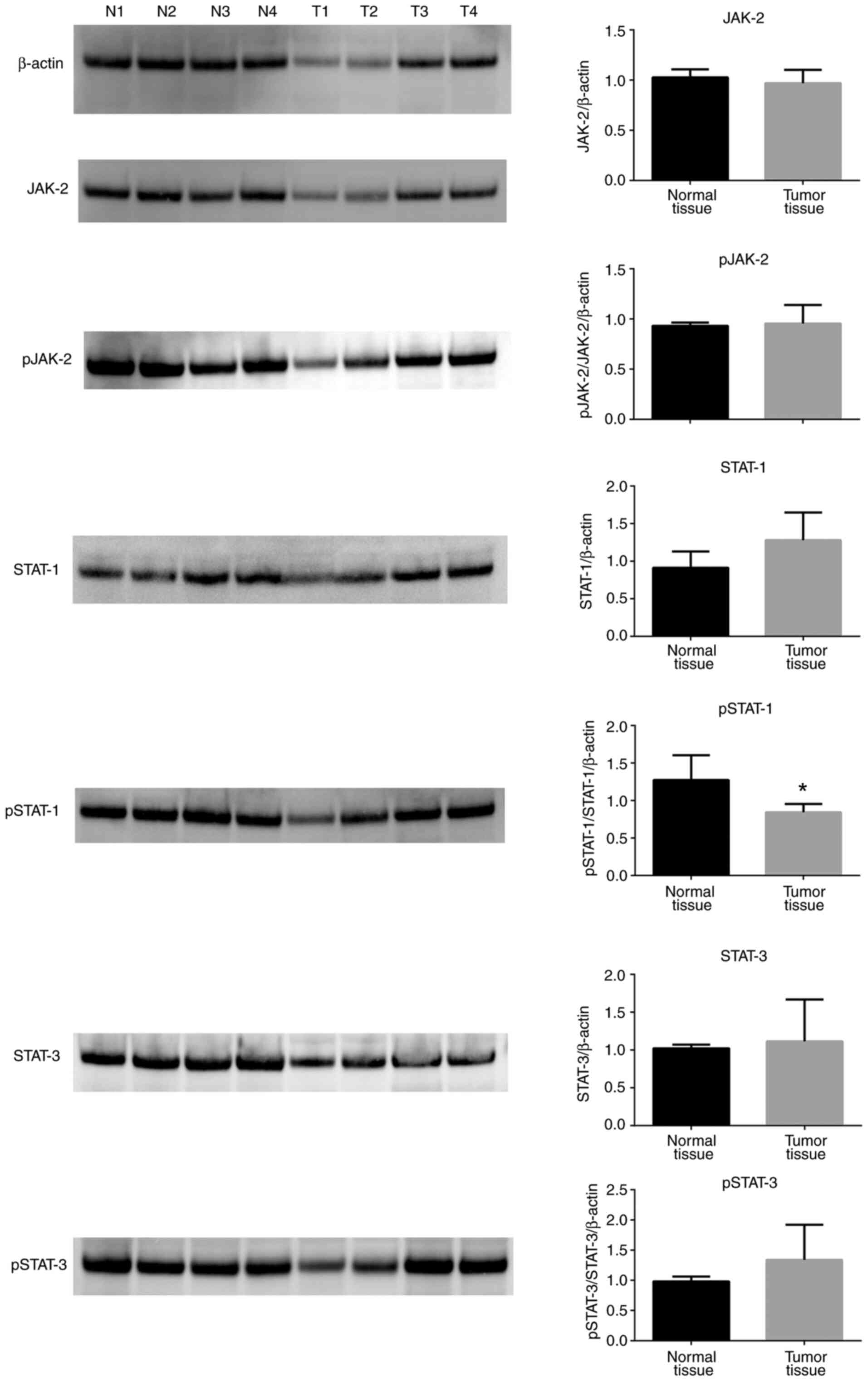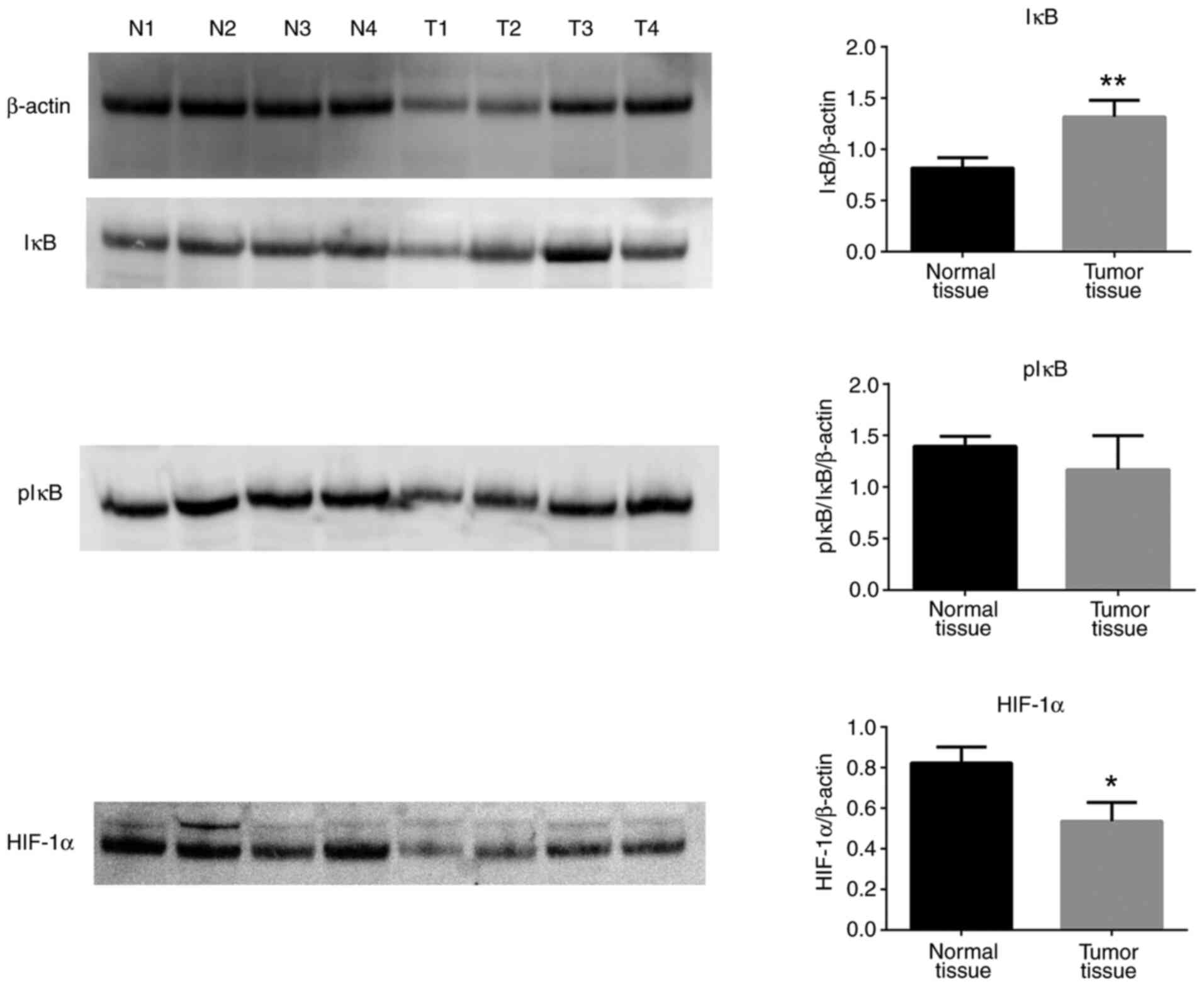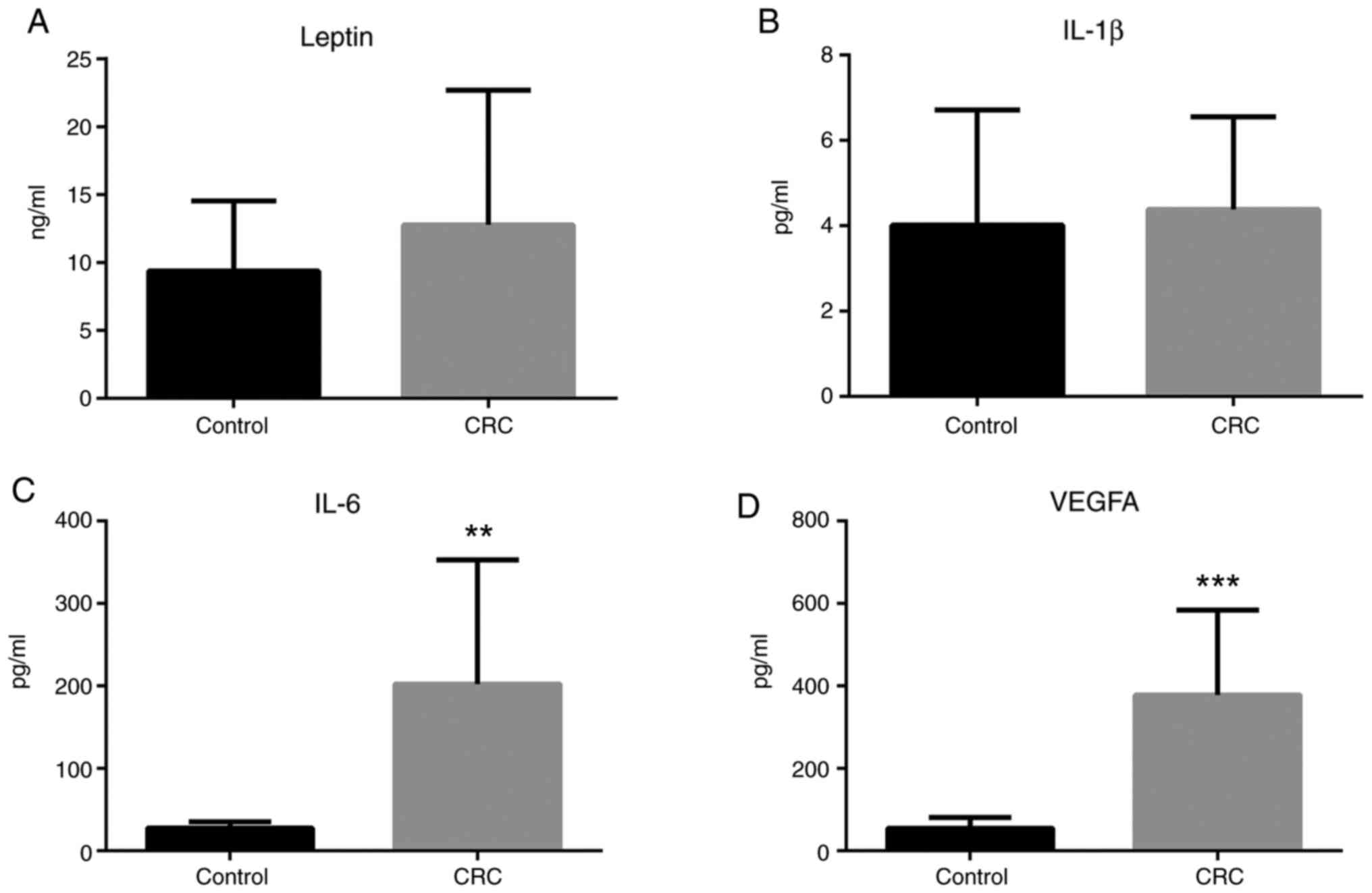|
1
|
van Kruijsdijk RC, van der Wall E and
Visseren FL: Obesity and cancer: The role of dysfunctional adipose
tissue. Cancer Epidemiol Biomarkers Prev. 18:2569–2578.
2009.PubMed/NCBI View Article : Google Scholar
|
|
2
|
Zhou W, Guo S and Gonzalez-Perez RR:
Leptin pro-angiogenic signature in breast cancer is linked to IL-1
signalling. Br J Cancer. 104:128–137. 2011.PubMed/NCBI View Article : Google Scholar
|
|
3
|
Gonzalez-Perez RR, Lanier V and Newman G:
Leptin's pro-angiogenic signature in breast cancer. Cancers
(Basel). 5:1140–1162. 2013.PubMed/NCBI View Article : Google Scholar
|
|
4
|
Guo S and Gonzalez-Perez RR: Notch, IL-1
and leptin crosstalk outcome (NILCO) is critical for leptin-induced
proliferation, migration and VEGF/VEGFR-2 expression in breast
cancer. PLoS One. 6(e21467)2011.PubMed/NCBI View Article : Google Scholar
|
|
5
|
Wang B, Wood IS and Trayhurn P: Hypoxia
induces leptin gene expression and secretion in human
preadipocytes: Differential effects of hypoxia on adipokine
expression by preadipocytes. J Endocrinol. 198:127–134.
2008.PubMed/NCBI View Article : Google Scholar
|
|
6
|
Elaraj DM, Weinreich DM, Varghese S,
Puhlmann M, Hewitt SM, Carroll NM, Feldman ED, Turner EM and
Alexander HR: The role of interleukin 1 in growth and metastasis of
human cancer xenografts. Clin Cancer Res. 12:1088–1096.
2006.PubMed/NCBI View Article : Google Scholar
|
|
7
|
Lipsey CC, Harbuzariu A, Daley-Brown D and
Gonzalez-Perez RR: Oncogenic role of leptin and Notch interleukin-1
leptin crosstalk outcome in cancer. World J Methodol. 6:43–55.
2016.PubMed/NCBI View Article : Google Scholar
|
|
8
|
Daley-Brown D, Harbuzariu A, Kurian AA,
Oprea-Ilies G and Gonzalez-Perez RR: Leptin-induced Notch and IL-1
signaling crosstalk in endometrial adenocarcinoma is associated
with invasiveness and chemoresistance. World J Clin Oncol.
10:222–233. 2019.PubMed/NCBI View Article : Google Scholar
|
|
9
|
Lee S, Trivedi U, Johnson C, Farquharson C
and Bergkvist GT: Optimised isolation method for RNA extraction
suitable for RNA sequencing from feline teeth collected in a
clinical setting and at post mortem. Vet Res Commun. 43:17–27.
2019.PubMed/NCBI View Article : Google Scholar
|
|
10
|
Rao X, Huang X, Zhou Z and Lin X: An
improvement of the 2ˆ(-delta delta CT) method for quantitative
real-time polymerase chain reaction data analysis. Biostat
Bioinforma Biomath. 3:71–85. 2013.PubMed/NCBI
|
|
11
|
Cust AE, Stocks T, Lukanova A, Lundin E,
Hallmans G, Kaaks R, Jonsson H and Stattin P: The influence of
overweight and insulin resistance on breast cancer risk and tumour
stage at diagnosis: A prospective study. Breast Cancer Res Treat.
113:567–576. 2009.PubMed/NCBI View Article : Google Scholar
|
|
12
|
Wei EK, Giovannucci E, Fuchs CS, Willett
WC and Mantzoros CS: Low plasma adiponectin levels and risk of
colorectal cancer in men: A prospective study. J Natl Cancer Inst.
97:1688–1694. 2005.PubMed/NCBI View Article : Google Scholar
|
|
13
|
Erkasap N, Ozkurt M, Erkasap S, Yasar F,
Uzuner K, Ihtiyar E, Uslu S, Kara M and Bolluk O: Leptin receptor
(Ob-R) mRNA expression and serum leptin concentration in patients
with colorectal and metastatic colorectal cancer. Braz J Med Biol
Res. 46:306–310. 2013.PubMed/NCBI View Article : Google Scholar
|
|
14
|
Endo H, Hosono K, Uchiyama T, Sakai E,
Sugiyama M, Takahashi H, Nakajima N, Wada K, Takeda K, Nakagama H
and Nakajima A: Leptin acts as a growth factor for colorectal
tumours at stages subsequent to tumour initiation in murine colon
carcinogenesis. Gut. 60:1363–1371. 2011.PubMed/NCBI View Article : Google Scholar
|
|
15
|
Wegler C, Ölander M, Wiśniewski JR,
Lundquist P, Zettl K, Åsberg A, Hjelmesæth J, Andersson TB and
Artursson P: Global variability analysis of mRNA and protein
concentrations across and within human tissues. NAR Genom
Bioinform. 2(lqz010)2019.PubMed/NCBI View Article : Google Scholar
|
|
16
|
Rene Gonzalez R, Watters A, Xu Y, Singh
UP, Mann DR, Rueda BR and Penichet ML: Leptin-signaling inhibition
results in efficient anti-tumor activity in estrogen receptor
positive or negative breast cancer. Breast Cancer Res.
11(R36)2009.PubMed/NCBI View
Article : Google Scholar
|
|
17
|
Noah TK and Shroyer NF: Notch in the
intestine: Regulation of homeostasis and pathogenesis. Annu Rev
Physiol. 75:263–288. 2013.PubMed/NCBI View Article : Google Scholar
|
|
18
|
Artavanis-Tsakonas S, Rand MD and Lake RJ:
Notch signaling: Cell fate control and signal integration in
development. Science. 284:770–776. 1999.PubMed/NCBI View Article : Google Scholar
|
|
19
|
Baron M: An overview of the Notch
signalling pathway. Semin Cell Dev Biol. 14:113–119.
2003.PubMed/NCBI View Article : Google Scholar
|
|
20
|
Guilmeau S, Flandez M, Mariadason JM and
Augenlicht LH: Heterogeneity of Jagged1 expression in human and
mouse intestinal tumors: Implications for targeting Notch
signaling. Oncogene. 29:992–1002. 2010.PubMed/NCBI View Article : Google Scholar
|
|
21
|
Shen Y, Wang Q, Zhao Q and Zhou J: Leptin
promotes the immune escape of lung cancer by inducing
proinflammatory cytokines and resistance to apoptosis. Mol Med Rep.
2:295–299. 2009.PubMed/NCBI View Article : Google Scholar
|
|
22
|
De Simone V, Pallone F, Monteleone G and
Stolfi C: Role of T H 17 cytokines in the control of
colorectal cancer. Oncoimmunology. 2(e26617)2013.PubMed/NCBI View Article : Google Scholar
|
|
23
|
Mueller L, von Seggern L, Schumacher J,
Goumas F, Wilms C, Braun F and Broering DC: TNF-alpha similarly
induces IL-6 and MCP-1 in fibroblasts from colorectal liver
metastases and normal liver fibroblasts. Biochem Biophys Res
Commun. 397:586–5891. 2010.PubMed/NCBI View Article : Google Scholar
|
|
24
|
Popivanova BK, Kitamura K, Wu Y, Kondo T,
Kagaya T, Kaneko S, Oshima M, Fujii C and Mukaida N: Blocking
TNF-alpha in mice reduces colorectal carcinogenesis associated with
chronic colitis. J Clin Invest. 118:560–570. 2008.PubMed/NCBI View
Article : Google Scholar
|
|
25
|
Pereira SG and Oakley F: Nuclear
factor-kappaB1: Regulation and function. Int J Biochem Cell Biol.
40:1425–1430. 2008.PubMed/NCBI View Article : Google Scholar
|
|
26
|
Hayden MS and Ghosh S: Signaling to
NF-kappaB. Genes Dev. 18:2195–2224. 2004.PubMed/NCBI View Article : Google Scholar
|
|
27
|
Puvvada SD, Funkhouser WK, Greene K, Deal
A, Chu H, Baldwin AS, Tepper JE and O'Neil BH: NF-kB and Bcl-3
activation are prognostic in metastatic colorectal cancer.
Oncology. 78:181–188. 2010.PubMed/NCBI View Article : Google Scholar
|
|
28
|
Kwon HC, Kim SH, Oh SY, Lee S, Kwon KA,
Lee JH, Choi HJ, Park KJ, Lee HS, Roh MS and Kim HJ:
Clinicopathological significance of nuclear factor-kappa B, HIF-1
alpha, and vascular endothelial growth factor expression in stage
III colorectal cancer. Cancer Sci. 101:1557–1561. 2010.PubMed/NCBI View Article : Google Scholar
|















